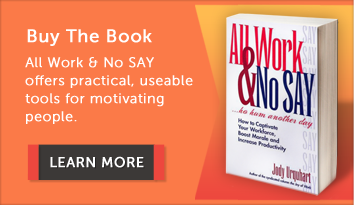 I recently made the switch from a Dell PC to an Apple Macbook Pro - a move I fought for many years. I was told that the Apple and the Microsoft Windows environments just don’t get along, and moving from one platform to the other would require a lot of change – and change requires courage.
I recently made the switch from a Dell PC to an Apple Macbook Pro - a move I fought for many years. I was told that the Apple and the Microsoft Windows environments just don’t get along, and moving from one platform to the other would require a lot of change – and change requires courage.
How did Apple convince me, like they have for millions of others, to take the leap, and to make that change at a much higher price? It was actually quite simple. They solved my problems and provided value.
In sales, when value exceeds price, people will buy. If you can provide undeniable value, people buy, regardless, sometimes, of the initial cost. If you can solve people’s problems, you become invaluable to them.
For great salespeople, success is not a choice, it’s an obligation. Driven by a determination to succeed, successful people sincerely believe in what they do and feel the responsibility to tell people about it.
Instead of waiting to be told what to do, a genuine salesperson will boldly and proactively determine where problems lie, and how they and their products can solve them. Those who really believe in the importance of the work they do don’t mind proactively pushing it down people’s throats. They will continue to ask for what they want in order to reveal their value to others.
As a leader, believing that employees’ success is optional (e.g. Let's just see how they perform.) can be detrimental to morale. Similarly, to continually let subordinates off the hook lowers the bar and lowers employee expectations. They realize it’s not really that important for them to succeed. Worse, if leaders go into the workplace with low expectations, they fail to provide the goals that lead to pride and a sense of accomplishment.
The best leaders create urgency around taking action and getting results. I love speaking for audiences in health care and human services, as they are natural advocates for their work. They believe so strongly in what they do that they will not back down; they are tenacious when it comes to providing great patient/client care. For them, success is not an option but an obligation. That same sense of importance can be legitimately adapted to any industry, but, as they say, “you gotta believe.” How can you make it work for you?


